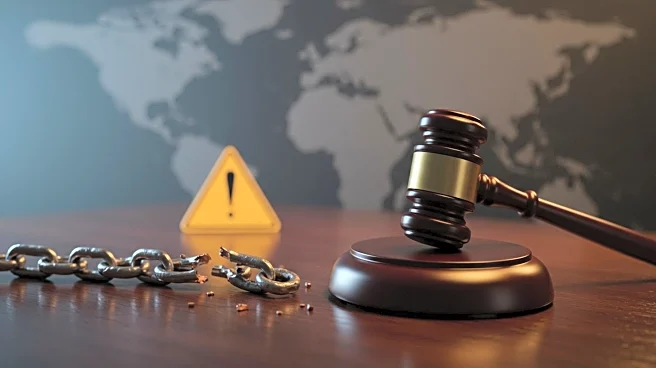What is the story about?
What's Happening?
Current ceasefire negotiations between Israel and Hamas, taking place in Cairo and Doha, are facing significant challenges. The discussions are based on a proposal similar to the earlier Witkoff plan, which was not implemented due to mutual accusations of bad faith. Despite Hamas reportedly accepting the new proposal, the deadlock persists over key issues such as the release of hostages and the future governance of the Gaza Strip. Observers remain skeptical about whether the current adjustments to the plan will be sufficient to overcome entrenched political and military positions.
Why It's Important?
The ongoing deadlock in ceasefire negotiations highlights the complex and deeply rooted issues that continue to hinder peace efforts in the region. The inability to reach an agreement not only prolongs the conflict but also exacerbates humanitarian conditions in Gaza. The situation underscores the need for innovative diplomatic solutions and sustained international engagement to address the underlying causes of the conflict and promote long-term stability.
What's Next?
The continuation of talks suggests that both parties are still seeking a resolution, albeit with significant obstacles. The international community, particularly the United States and Qatar, will likely continue to play a mediating role. The outcome of these negotiations could have far-reaching implications for regional security and the broader Middle East peace process.
















